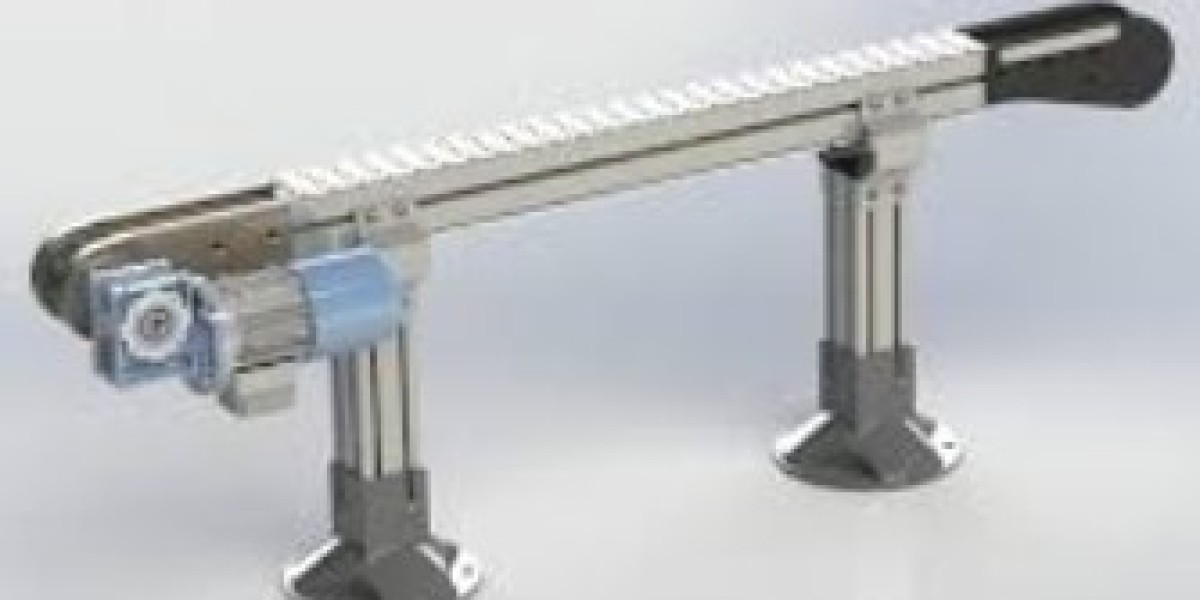In today’s fast-paced industries, efficient material handling is essential for smooth operations. This is where Flexible Chain Conveyors you come into play. These conveyors are specifically designed to adapt to various layouts and production environments, making them a popular choice across industries like packaging, food production, and electronics. Unlike traditional conveyors, flexible chain systems provide agility and adaptability without compromising speed or load capacity.
What are Flexible Chain Conveyors?
Flexible chain conveyors are advanced conveyor systems that use interconnected chain links capable of bending, twisting, and curving to suit different layouts and movement needs. These conveyors provide a level of flexibility that traditional straight-line systems cannot, making them ideal for processes where space is tight or pathways are complex. These systems can navigate horizontal, vertical, and spiral paths, adapting to the production floor’s needs.
Key Components of Flexible Chain Conveyors
Flexible chain conveyors have several essential components that work in tandem to move products efficiently:
- Chains and Links: Made from materials like stainless steel, plastic, or other durable polymers, these are designed to withstand wear and friction.
- Frames and Guides: These provide stability and help guide the chain along the desired path. Frames are often customizable to different layouts and heights.
- Motors and Drives: The motor and drive mechanism power the movement, making it possible to control speed and torque to match the load.
Each component contributes to the durability, speed, and adaptability of the conveyor, enabling it to handle varied materials and operate in demanding industrial environments.
Types of Flexible Chain Conveyors
Flexible chain conveyors come in several configurations to suit different applications and spaces:
- Straight Flexible Chain Conveyors: For straightforward, linear movement, ideal in simpler layouts where only slight adjustments are necessary.
- Curved or Angled Flexible Conveyors: Designed for pathways with turns, these conveyors bend to fit layouts with angled directions or small turns.
- Spiral and Vertical Flexible Conveyors: These conveyors move vertically or in spiral patterns, saving space and optimizing floor layouts in multi-level production systems.
Each type serves specific needs, allowing for custom conveyor paths and efficient space utilization.
How Flexible Chain Conveyors Work
Flexible chain conveyors use a modular system with chains and links, allowing the conveyor to twist, bend, or spiral. The chain is guided along tracks and frames, and a motorized drive powers the conveyor. The chain links are designed to bear weight effectively and to transfer items without slipping. The speed of the conveyor is adjusted to match load requirements, which keeps materials flowing smoothly and consistently along the pathway.
Benefits of Using Flexible Chain Conveyors
Flexible chain conveyors offer significant advantages:
- Adaptability: They can be customized for unique floor plans, moving products through tight corners and multiple levels.
- Durability: With quality materials, these conveyors withstand friction and resist wear over time.
- Efficiency: By optimizing space and reducing the need for manual handling, they increase productivity and workflow.
Whether in food processing, electronics, or automotive manufacturing, these conveyors enhance material handling flexibility and efficiency.
Common Applications of Flexible Chain Conveyors
Flexible chain conveyors are versatile, fitting a wide range of industries:
- Packaging: Perfect for moving boxed or packed goods efficiently through complex layouts.
- Food and Beverage: These conveyors work well with strict sanitary standards, handling both dry and liquid-filled containers safely.
- Pharmaceuticals and Healthcare: Ideal for handling sensitive items such as medical packaging and small components.
- Electronics and Consumer Goods: The adaptability and gentle handling make them suitable for moving delicate items through different stages of assembly.
Their flexibility and reliability make them invaluable across diverse sectors with unique handling needs.
Materials Used in Flexible Chain Conveyors
The materials used in flexible chain conveyors are critical to their performance. Chains are commonly crafted from plastic, stainless steel, or specialized polymer blends. Plastic is lightweight and cost-effective, while stainless steel is more durable and resistant to heat. Choosing the right material ensures the conveyor can withstand the load, temperature, and chemical exposure of its working environment.
Installation and Setup of Flexible Chain Conveyors
Installing a flexible chain conveyor requires planning and precision. Before installation, the layout is mapped out, ensuring it matches the conveyor’s design and operational requirements. Installation typically involves securing the frame, attaching the chain links, setting up the drive motor, and configuring any sensors or controls for automated operations. Safety precautions, such as proper alignment and electrical checks, are essential to avoid potential issues.
Maintenance Tips for Flexible Chain Conveyors
To keep flexible chain conveyors in top condition, regular maintenance is key:
- Inspection: Regular checks for wear on chains, links, and other components can prevent breakdowns.
- Lubrication: Lubricating moving parts minimizes friction and extends the system’s lifespan.
- Cleaning: Regular cleaning, especially in food or pharmaceutical settings, prevents product contamination and wear.
With consistent care, flexible chain conveyors can remain efficient and reliable, reducing unexpected downtime.
Cost Considerations
Flexible chain conveyors are an investment with long-term benefits. The initial cost depends on materials, length, complexity, and motor power. However, the system’s adaptability and durability can yield significant savings in labor costs and floor space utilization, making it cost-effective over time. Investing in a system that fits current and future needs is often more economical than frequent upgrades.
Flexible Chain Conveyors vs. Traditional Conveyors
Unlike traditional straight-line conveyors, flexible chain conveyors can navigate curves and inclines, offering more versatility. This makes them ideal for dynamic environments with limited space. Traditional conveyors may still be preferred for simple, heavy-duty applications, but flexible chain conveyors excel in environments requiring more adaptable layouts and high efficiency.
Challenges and Limitations of Flexible Chain Conveyors
Despite their benefits, flexible chain conveyors have limitations. They may not be suitable for extremely heavy loads due to chain and motor constraints. Complex installations or tight curves may require specialized expertise, increasing setup costs. Understanding these limitations helps in choosing the right conveyor for each application.
Future Trends in Flexible Chain Conveyor Technology
As technology advances, flexible chain conveyors are evolving with automated features and smart sensors. These conveyors can now integrate with Industry 4.0 systems, allowing for real-time monitoring, predictive maintenance, and performance optimization. Robotics and IoT advancements continue to drive innovation in conveyor systems.
How to Choose the Right Flexible Chain Conveyor for Your Business
Selecting the right flexible chain conveyor requires a clear understanding of the business’s operational needs. Consider factors like load weight, required path flexibility, space constraints, and material compatibility. Consulting with conveyor experts can ensure that the chosen system is a perfect match for the production environment.
Flexible chain conveyors have transformed material handling with their ability to adapt to different layouts, making them a smart investment for industries looking to optimize space and efficiency. With the right selection and maintenance, these conveyors offer reliable, long-lasting solutions that enhance productivity across various sectors.
Contacts:
Email: [email protected]
Mobile: +86 180 2765 2537
Social Media:
https://www.linkedin.com/company/vitrans-conveyor/
https://www.facebook.com/people/Vitrans-Conveyor/61560765876931/
https://www.youtube.com/@Vitransconveyor



